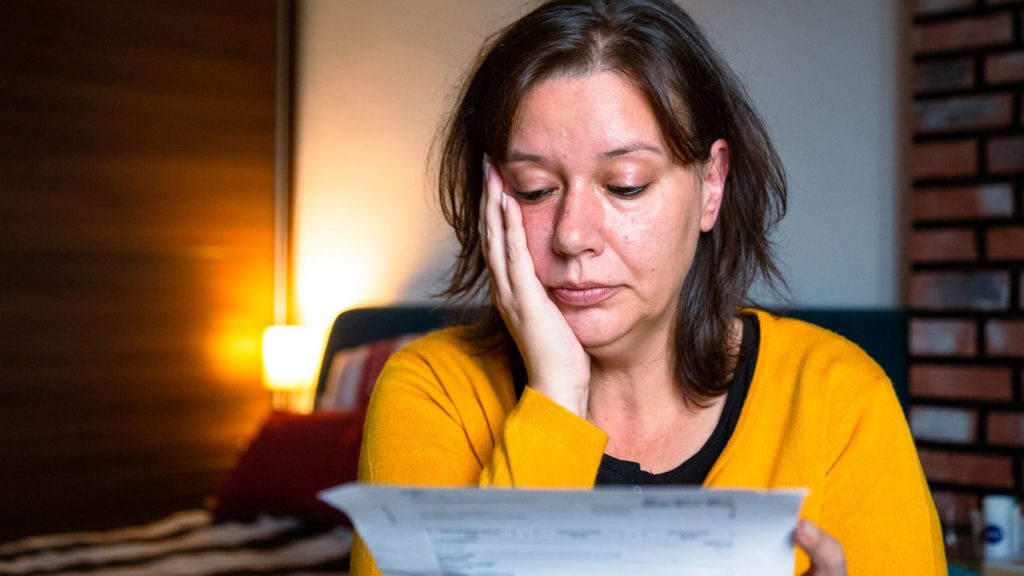Consumer confidence plummets over future inflation concerns and cost of living fears | Business News

Consumer confidence has suffered its biggest fall since the early days of the pandemic, according to a survey.
The Consumer Confidence Index (CCI) from YouGov and the Centre for Economics and Business Research (Cebr) measures how optimistic people are feeling about the state of the economy.
Benchmarked at 100, above that figure consumers are generally optimistic, below 100 they are pessimistic.
The CCI fell by 4.2 points in August from 103.0 to 98.8, as inflation, largely driven by energy price rises, piles pressure on people ahead of winter.
Even measures such as house prices and job security, although still positive, fell by 7.2 points to 124.9 and 2.4 points to 118.5 respectively.
The survey was taken between 1 and 31 August, before Prime Minister Liz Truss announced her plan to freeze energy bills at £2,500 a year for a typical household.
Kay Neufeld, head of forecasting at Cebr, said: “Following a short-lived improvement in July, the 4.2-point fall in the Consumer Confidence Index in August represents the steepest decline since the early days of the COVID-19 pandemic and drags the headline index into overall pessimistic territory.
“The index was led lower by cratering sentiment regarding future household finances, as warnings about the upcoming increase to the energy price cap reached a climax in August.
“While the announcement of the energy price freeze by the new Prime Minister Liz Truss is expected to alleviate some of the most pressing concerns, weaker sentiment has spilled over into the other constituent metrics of the index.
“Most notably, consumers are more downbeat about the future value of their own home as rising mortgage rates are expected to trigger a price correction in the property market.”
Read more:
Cost of living: Stark new retail data paints a bleak picture
Emma McInnes, global head of financial services at YouGov, said: “This latest dip in consumer confidence exemplifies a longer trend of sustained decline.
“In spite of July’s small uptick, this data from August sees our index score entering negative territory for the first time since the early days of the pandemic in June 2020.
“And, despite the fieldwork for this study taking place before Liz Truss took up office and announced her plan to freeze energy bills for the average household, it’s clear that the new prime minister is facing an uncommonly dour public mood, particularly in terms of personal finance.”







Recent Comments